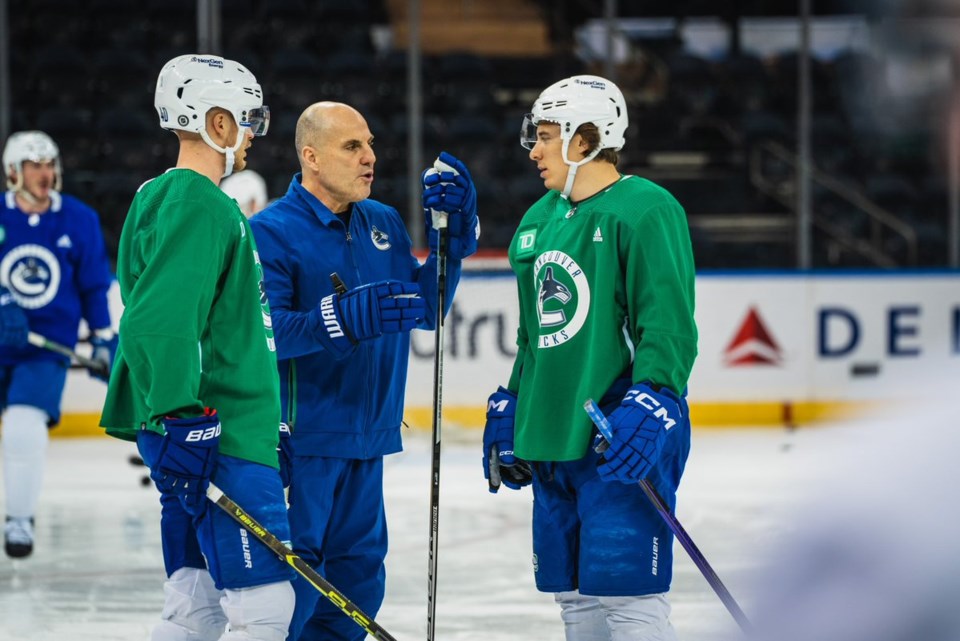When several Canucks players took to the ice in April for some extra training time with Daniel and Henrik Sedin, including Dakota Joshua and Jack Studnicka, it seemed innocuous enough.
There was just one problem: it violated the Collective Bargaining Agreement (CBA) between the NHL and the NHLPA, netting the Canucks a $50,000 fine. Team coaches and staff are not permitted to have on-ice sessions with players during the offseason outside of prescribed training camps.
"Prohibited Off-Season Activities. Clubs are not permitted to have Club Coaching or Hockey Operations personnel (e.g., coaches, skating instructors, other Club employees, contracted service providers, etc.) participate in any on-ice sessions with Players," reads the expanded rule 15.11 from the Memorandum of Understanding that amended the CBA coming back from the COVID-19 stoppage.
This is in place to prevent teams from making unreasonable demands of their players' time. The players, through the NHLPA, have negotiated for the off-season months to be their time off and teams, just like any boss, can't require the players to work during their time off. Even something as beneficial as extra ice time with the Sedins could be subtly twisted into a requirement — "If you don't want to take part in this training session, I guess you're not serious about making the team," a coach might say, for instance.
So, even though the rule might seem unnecessary, there's a reason it exists.
Only, now they've changed the rule.
In response to the Canucks' fine, the NHL and NHLPA have agreed on a trial of a new policy that would allow players to request sessions with a skills coach employed by the team this off-season. In order to still protect the players from having the team control their off-season time, players have to request those on-ice sessions through the NHLPA.
It seems like a reasonable solution for players who want to continue to receive coaching from familiar faces through the summer, as well as make things a little bit easier for those players lower on the rungs who don't have multi-million dollar deals that leave plenty of money available to pay for top-tier private coaching.
Having it restricted to a single skills coach prevents the possibility of this policy leading to full-fledged off-season training camps, but instead just one-on-one sessions.
The trial of this new rule doesn't mean the Canucks' $50,000 fine has been rescinded, however. Even if the Canucks' training sessions sparked this revised policy, they still broke the rules and why would the NHL retroactively change the rules for the Canucks' benefit? They only do that when it hurts the Canucks, not when it helps them.
This does benefit the Canucks players who are sticking around Vancouver for their off-season training, however, as they can potentially get more use out of the Canucks' facilities and coaching staff prior to next season.




